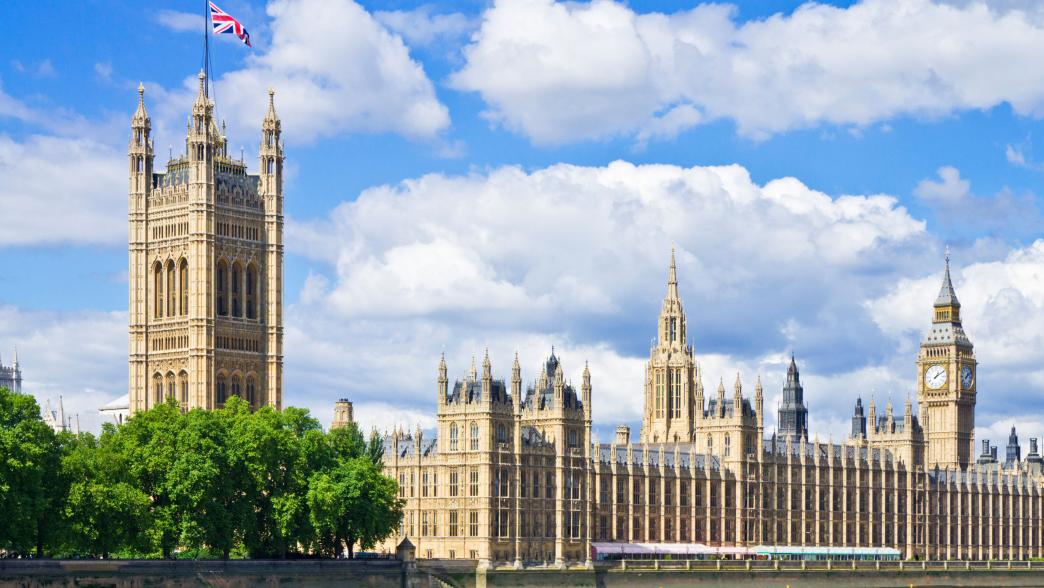Rishi Sunak should not disregard Lords scrutiny of his Rwanda bill
The prime minister's comments on the scrutiny role played by peers are a cause for concern.

The prime minister should be wary of setting precedents that his party may come to regret, writes Hannah White
The PM was wrong to ask peers to accelerate their scrutiny of the Rwanda legislation
The government’s Safety of Rwanda (Asylum and Immigration) Bill has now entered parliamentary 'ping pong', with MPs and peers debating the amendments the Lords proposed to the bill signed off after cursory examination by the Commons.
The bill's policy proposals are highly contested but the scrutiny to which the bill has been subject is also concerning - including the prime minister’s comments on the role played by peers – and the legal and parliamentary precedents that he is setting.
Legislative scrutiny is not a rubber stamp
As the Rwanda bill was dispatched to the upper house, Rishi Sunak made a speech urging peers “not to frustrate the will of the people” and to be speedy in their scrutiny of the legislation. He is obviously anxious to get the bill on the statute books so that his government can implement its policy ahead of the expected general election. Some have even speculated that the aim is for a plane to take off in late March before the deadline passes by which a May 2 election would need to be called.
But it was wrong for the PM to pressure peers to accelerate their scrutiny. Even setting aside the fact that the Rwanda policy was not a Conservative manifesto commitment, so “the will of the people” has yet to be established, it is important for Sunak and his government that the policy is thoroughly examined by parliamentarians. The fact that scrutiny is not simply a rubber stamp to be applied as quickly as possible appears to have been forgotten by today’s ministers – if, with their parliamentary careers shaped by aberrant legislative practices of Brexit and the pandemic, they ever learnt it in the first place.
Constitutionally novel legislation should be subject to careful scrutiny
Scrutiny of the Rwanda bill is particularly important because the proposed legislation takes a novel constitutional approach in a number of ways. These include the proposal that the 'judgement of Parliament' should replace evidence-based findings of fact by UK courts, and the internationally unprecedented permission given to ministers to ignore interim measures imposed by the European Court of Human Rights.
These are significant departures from previous constitutional practice with possibly significant unforeseen consequences for the relationship between government, parliament and the courts – as Professor Jeff King has persuasively written. 4 ukconstitutionallaw.org/2024/01/26/jeff-king-the-house-of-lords-constitutional-propriety-and-the-safety-of-rwanda-bill/
In practice, the ‘usual channels’ in the Lords agreed a timetable which could see the Rwanda bill reach the statute books before Easter. This is typical of the upper house, which is always mindful of its subordinate position in relation to the elected lower house. But also typical of the Lords is its careful examination of important constitutional proposals – a practice now entirely abandoned by MPs in the Commons – and its willingness to ask MPs to think again if necessary. If the Lords had simply rubber stamped the bill then the significant policy changes and government expenditure it entails would have been subject to barely any scrutiny.
The prime minister should be wary of the precedents he is setting
The prime minister’s comments implied that he thinks the experts of the upper house should not take their time to explore and debate the novel provisions of the bill – that they should simply nod them through. Sunak might be convinced of the merits of his own bill and impatient to see it become law, but he would do well to think beyond his own short term policy objectives and instead recognise the important scrutiny role that peers play. Another lesson that he and his ministers appear to be ignoring is the danger of setting legal and parliamentary precedents upon which future governments may seek to rely.
The Labour party – currently well ahead in the polls – also has significant and constitutionally novel plans it would like to implement should it enter government after the next election. An opposition Conservative party is unlikely to feel sanguine about radical House of Lords reform or substantial fiscal devolution being pushed through parliament without thorough examination and debate. Yet the government’s legislative practice in recent years has provided plenty of unfortunate precedents upon which future governments could draw to justify a pretty cursory approach. The government’s handling of the Rwanda bill could yet set precedents that Rishi Sunak – or a future Conservative party leader – will regret.
- Keywords
- Immigration Law Parliamentary scrutiny
- Political party
- Conservative
- Position
- Prime minister
- Administration
- Sunak government
- Department
- Home Office
- Legislature
- House of Lords
- Public figures
- Rishi Sunak
- Publisher
- Institute for Government